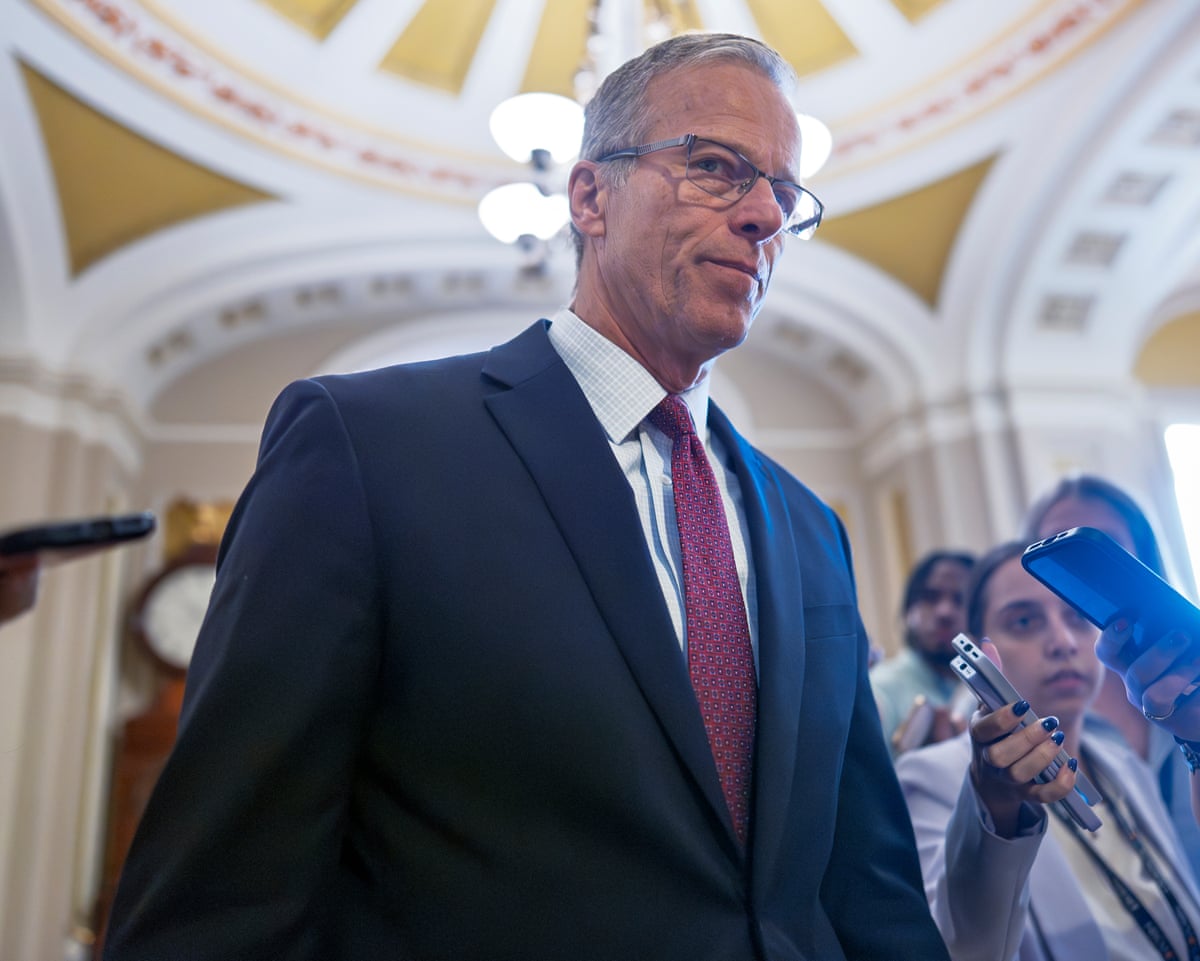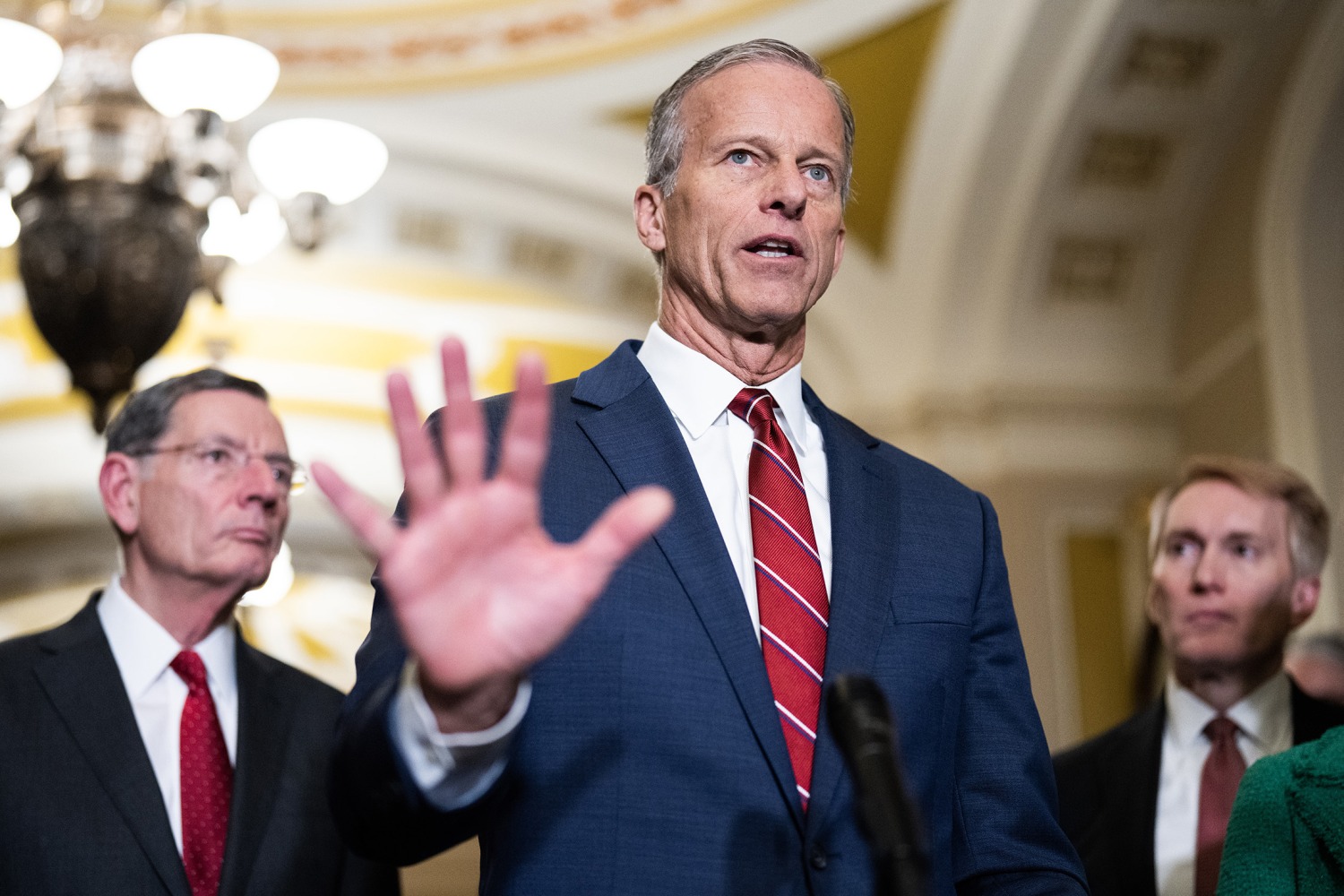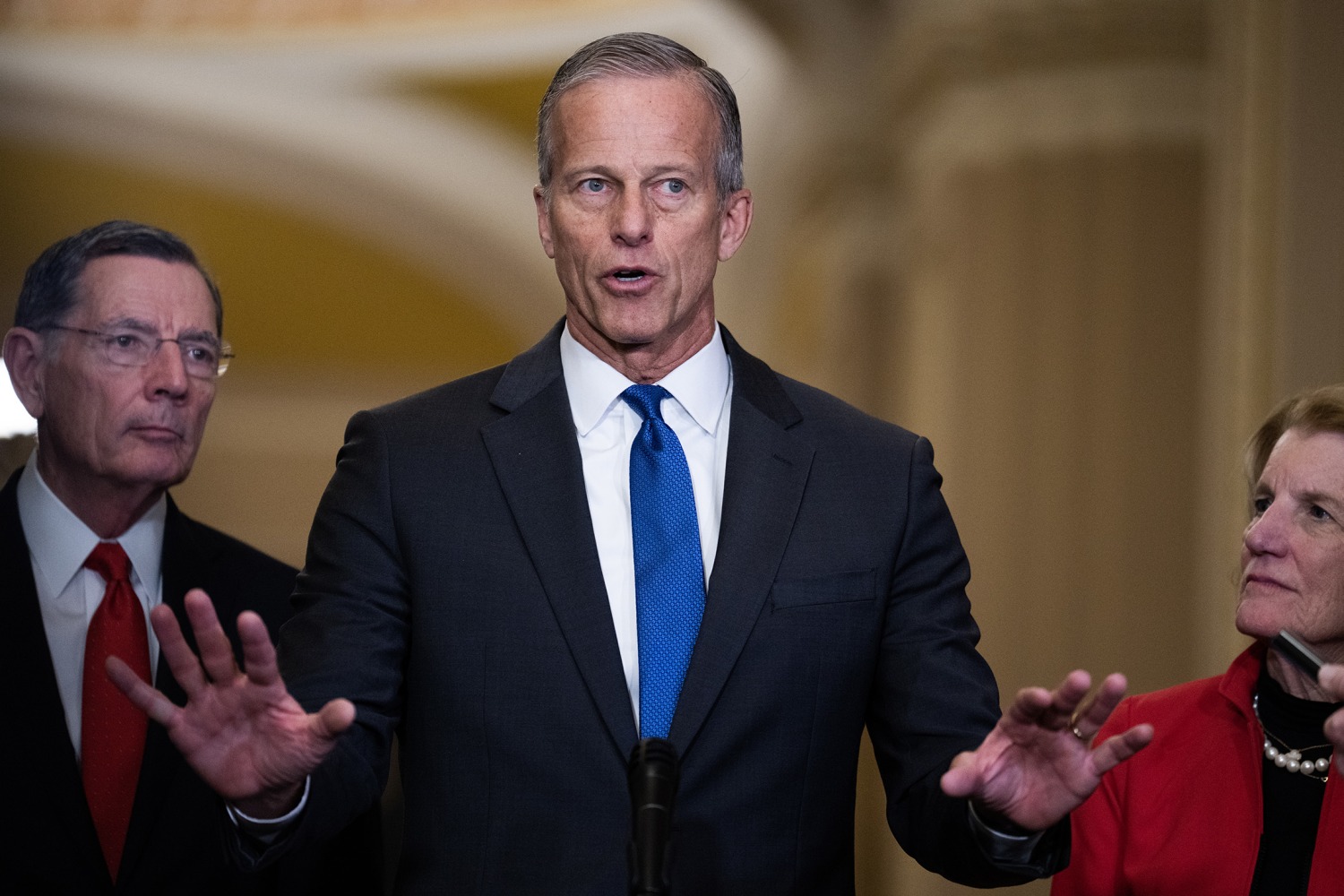
A pivotal moment unfolded in the U.S. Senate as Republicans rallied behind President Donald Trump’s $9 billion spending clawback initiative, overcoming its second procedural hurdle with a narrow 51-50 vote.
Vice President JD Vance cast the decisive tie-breaking vote, ensuring the legislation’s advancement after a tense night session. This development tees up an anticipated 10-hour debate, during which Senate Democrats are poised to challenge the proposal’s cuts to foreign aid and public broadcasting funding, potentially prolonging the legislative process.
The bill, a scaled-down version of Trump’s original $9.4 billion request, reflects a delicate balancing act for GOP senators as they navigate demands for fiscal restraint alongside commitments to international health programs.
The legislation’s passage through this latest hurdle underscores the party’s alignment with Trump’s agenda, with nearly all Senate Republicans voting in favor.
The only dissenters within the GOP were Senators Lisa Murkowski of Alaska, Susan Collins of Maine, and Mitch McConnell of Kentucky, who broke ranks to oppose the measure.
Their opposition highlights internal divisions, particularly over the proposal’s impact on global health initiatives and domestic media funding. Despite their resistance, the Republican majority held firm, propelled by Trump’s influence and the strategic intervention of Vance.
The bill now moves into a critical debate phase, where the Senate will scrutinize its provisions before entering a vote-a-rama—a marathon session allowing unlimited amendments from both parties.
Democrats, united in their opposition, are expected to use the debate to criticize the clawback package’s reductions, which target $8.3 billion in foreign aid and $1.1 billion for the Corporation for Public Broadcasting (CPB), the entity supporting NPR and PBS.

They aim to drain procedural time and force Republicans to defend their stance, potentially exposing vulnerabilities as the midterms approach.
Meanwhile, Republicans plan to introduce an amendment to protect approximately $400 million in funding for the President’s Emergency Plan for AIDS Relief (PEPFAR), a Bush-era program credited with saving millions of lives globally by combating HIV/AIDS.
This carveout, pre-negotiated with White House backing, addresses concerns raised by some GOP senators who threatened to withhold support unless the program was safeguarded.
The PEPFAR adjustment emerged as a response to unease among Republicans like Murkowski and Collins, who have emphasized the program’s bipartisan legacy and its role in U.S. soft power.
However, this modification poses a challenge as the bill heads back to the House, where Speaker Mike Johnson of Louisiana has urged Senate Republicans to preserve the original package unchanged. Johnson, alongside fiscal hawks in the House Freedom Caucus, has warned that alterations could provoke significant pushback, stopping short of an outright revolt but signaling potential resistance.
The tension reflects a broader struggle within the GOP between fiscal conservatives and those prioritizing international commitments, a dynamic that could complicate the bill’s final passage.
Senate Majority Leader John Thune of South Dakota expressed optimism about reconciling these differences, noting, “There was a lot of interest among our members in doing something on the PEPFAR issue.”
He described the amendment as a “substitute” reflecting this concern and expressed hope that the House would accept this “small modification” to ensure the bill meets the looming Friday deadline.

This deadline, tied to a 45-day window for rescinding funds under current law, adds urgency to the legislative process, with failure to act by July 18 risking the release of the targeted funds.
The clawback package originates from Trump’s administration’s use of a rarely invoked authority to request the cancellation of previously approved spending.
The initial $9.4 billion proposal, shaped with input from the Department of Government Efficiency (DOGE) led by Elon Musk until his recent departure, aimed to reduce federal outlays.
The reduction to $9 billion, driven by the PEPFAR exemption, represents a compromise to secure Senate support, though it risks alienating House conservatives who view any change as a dilution of fiscal discipline.
The CPB cut, in particular, has drawn scrutiny, with critics arguing it threatens local public media stations, including those serving Native American communities, a concern echoed by Senator Mike Rounds of South Dakota.
The debate will likely spotlight the trade-offs inherent in the legislation. Proponents argue it advances fiscal responsibility by curbing what they see as wasteful spending, aligning with Trump’s campaign promises to prioritize American taxpayers.
The White House has framed the cuts as surgical, targeting inefficiencies while preserving core programs, though details remain sparse, fueling skepticism.
Opponents, including Democrats and some moderate Republicans, contend that the reductions undermine critical international health efforts and domestic media access, potentially harming vulnerable populations.

The PEPFAR program, which has saved an estimated 26 million lives since 2003, exemplifies this tension, with its proposed $400 million cut initially alarming lawmakers before the amendment.
The vote-a-rama, set to follow the debate, will serve as a battleground for these competing priorities. Democrats are expected to propose amendments to restore funding or highlight Republican inconsistencies, though these efforts are likely to fail given the GOP’s majority.
Republicans, meanwhile, may refine the bill further, with the PEPFAR carveout setting a precedent for protecting other favored programs. The process’s open-ended nature could extend into the night, testing senators’ endurance and the party’s cohesion as they navigate Trump’s demands and internal dissent.
House dynamics add another layer of complexity. Johnson’s call for no changes reflects the narrow 214-212 House vote in June, where four Republicans joined Democrats in opposition.
Fiscal hawks, including members of the Freedom Caucus, have criticized the Senate’s adjustments as weakening the bill’s deficit-reduction intent, especially as the broader Trump tax and spending package—passed earlier with a $3.3 trillion debt increase over a decade—already strains fiscal limits.
The House’s willingness to accept the PEPFAR amendment will hinge on negotiations between leadership and rank-and-file members, with Trump’s involvement likely to be decisive.
The political stakes are high. For Trump, the clawback’s success reinforces his control over the GOP agenda, appealing to his base’s focus on domestic priorities.
For Senate Republicans, it tests their ability to balance party loyalty with constituent interests, particularly in states like Alaska and Maine, where Murkowski and Collins face unique pressures. McConnell’s opposition, rare for the former majority leader, signals strategic caution, possibly reflecting concerns about long-term party unity or the bill’s fiscal implications.

Public sentiment, as gauged from posts on X, shows a mix of support and skepticism. Some users applaud the cuts as a step toward accountability, while others decry the PEPFAR threat as shortsighted, reflecting broader debates about U.S. global leadership.
These views, while inconclusive, underscore the polarizing nature of the legislation, which could influence voter perceptions ahead of 2026.
Internationally, the bill’s impact on PEPFAR could strain alliances, particularly with African nations reliant on the program. Critics argue that reducing U.S. health funding undermines soft power, a point raised by Senator Mitch McConnell, who called the process “unnecessarily chaotic.”
The CPB cuts, meanwhile, may draw international attention to U.S. media policy, potentially affecting perceptions of American democracy.
Legally, the 45-day deadline imposes a tight timeline, with the Senate’s amendment necessitating House approval. If the House rejects the changes, the process could stall, forcing a conference committee or further negotiation.
The use of a simple majority under budget reconciliation rules bypasses the filibuster, but it heightens the need for party discipline, a challenge given the dissent from Murkowski, Collins, and McConnell.
The psychological toll on lawmakers is evident. Thune’s cautious optimism contrasts with the “agonizing” deliberations described by Murkowski, reflecting the personal and political weight of the vote.
Trump’s social media warnings against dissent further pressure senators, while Democrats leverage the debate to frame Republicans as prioritizing wealth over welfare—a narrative they plan to amplify in campaigns.

In conclusion, Senate Republicans’ clearance of the second hurdle for Trump’s $9 billion clawback package sets the stage for a contentious 10-hour debate and vote-a-rama, with the PEPFAR amendment as a focal point.
The legislation balances fiscal responsibility with international health commitments, but tensions with the House and internal GOP divisions threaten its path.
As the Friday deadline nears, the outcome will test party unity, Trump’s influence, and the broader implications for U.S. policy, potentially shaping the fiscal and political landscape through the 2026 midterms and beyond.


-1750486704-q80.webp)
